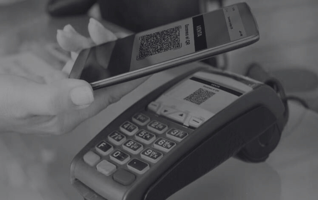While Pix is a success story, there were many challenges in the beginning. Banks, payment...
As instant payments grow in the U.S., concerns remain about fraud related to transaction speed and irrevocability. Especially as authorized payment fraud appears to be on the rise, some consumers and businesses are reluctant to engage in faster payments.
Source: Zelle Report by Office of Senator Elizabeth Warren
This may soon change as seven of the biggest U.S. banks are in talks to devise a plan to reimburse Zelle scam victims. Not only may this help boost confidence for banks and consumers, but it could provide a blueprint for RTP and FedNow.
While not technically an instant payment scheme, Zelle’s near real-time nature and publicity around user scams present an opportunity to lead the payments industry in creating consumer protections around authorized payment fraud. To be clear, authorized payment fraud is when an account holder is tricked into authorizing an instruction to send money to a fraudster.
Banks are required to refund customers for unauthorized fraudulent transactions, but there is no enforced protection for customers who authorized a transaction, even if they were tricked into sending money.
Zelle’s announcement will potentially change this.
PLAN FRAMEWORK
Under the new plan, Zelle will rely on the receiver's bank to refund the sender when it’s confirmed that a sender was tricked.
Specifically, if the two banks have determined that a customer had been deceived into sending money, the bank account where the funds were sent would immediately return the money back to the sender’s bank.
The Zelle reimbursement plan is directed towards the “me-to-me” scam particularly. This is when a scammer poses as an authority figure and instructs a customer to send a payment using Zelle to their own email address or phone number. The scammer would then attach their bank account to this email or phone and confiscate the money sent. JP Morgan and Bank of America already extend this reimbursement offer to their customers, but this upcoming plan design would then expand this refund scenario to all Zelle users.
This new plan will not provide reimbursement for customers who request refunds due to common retail challenges such as product dissatisfaction or goods and services never being received.
These rules, if implemented, would put obligations on financial institutions that offer Zelle to adhere to them or no longer be a part of the Zelle network. This new refund plan could be implemented and active as soon as early next year.
IMPLICATIONS
Consumers clearly value the visibility provided by instant payments. But instant payments create a new set of expectations and responsibilities for payers and receivers. The banking industry needs to convince customers not only of the value of instant payment but that instant payments are safe.
Many of the same banks behind Zelle offer RTP and will likely process FedNow instant payment transactions when launched in 2023. As Zelle’s new plan becomes implemented, it could be leveraged for these instant payment rails as well to promote trust.




